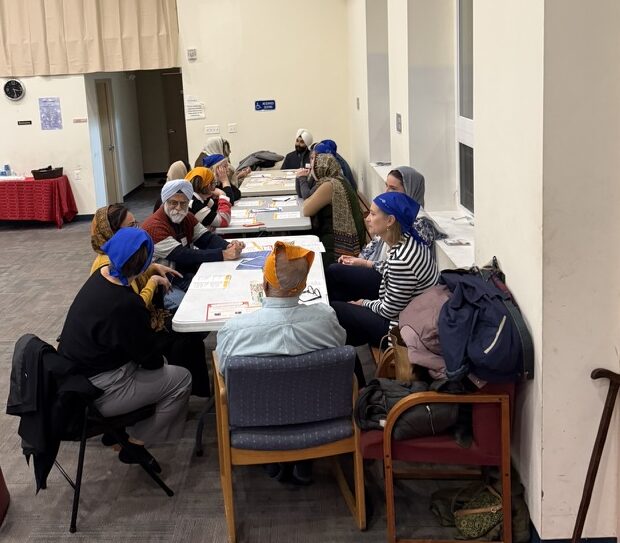
I was recently at Princeton Seminary to support one of our staff members at a program for young Christian leaders. It’s an excellent program—full of bright, committed people.
One of the presenters talked about how many younger folks have mixed feelings about “institutional” religion. Afterward, I joined a small group conversation. I said I wasn’t sure “institutional” was quite the right word. After all, young people know that groups need spaces to meet—and that the roof has to be replaced from time to time.
What I think they’re wrestling with is something deeper. For most of human history, belonging to an ingroup was essential for survival. But today, when so many groups act like their members are the only truly human ones, those same instincts have become a threat to our shared survival.
These seminary leaders understood that. They had already thought about it. But I pressed on and asked, “In this program, as you form your identity as Christian leaders, do you talk about how to relate to people of other traditions—or no tradition at all?”
They said no.
That answer stuck with me. Because in a time when groups are so isolated, when social media feeds us dehumanizing stories about people we don’t know, and when some political voices paint other groups as dangerous or disgusting—is this really the time for any faith tradition to avoid that question?
To their credit, the leaders of the program listened. They even said they’d consider adding interfaith cooperation to their training. I was encouraged—but also concerned. If even the most thoughtful people at one of our best seminaries aren’t including this, what does that mean for the rest of us?
A few days later, Viveka and I met with Congressman Rick Larsen’s chief of staff and Senator Patty Murray’s office. They immediately understood what we’re trying to do: change the conditions in our communities by building belonging and civic muscle.
Then we helped host a Potluck Project event at the Washington Sikh Center in Gaithersburg, Maryland. As people shared food and stories, laughter began to fill the room. Smiles grew wider. People expressed deep appreciation for one another.
And I realized something again: we already have everything we need to heal our loneliness, our fear, and our mistrust. The tools are simple—conversation, shared meals, and the courage to reach across divides.
Like every time humanity has faced a turning point, change begins small and spreads in ways we may never see.
Human beings are not only vulnerable to dehumanization. We are also capable—beautifully capable—of seeing the human in one another, and finding it again in ourselves.
At Paths to Understanding, this is the work we’re committed to—gathering neighbors and growing trust. Whether it’s a seminary classroom, a congressional office, or a community potluck, every act of connection helps rebuild the fabric of belonging that holds our society together. We believe that when people from different backgrounds share food, stories, and laughter, they discover what’s been true all along: we belong to each other, and together, we can build a world that works for everyone.
